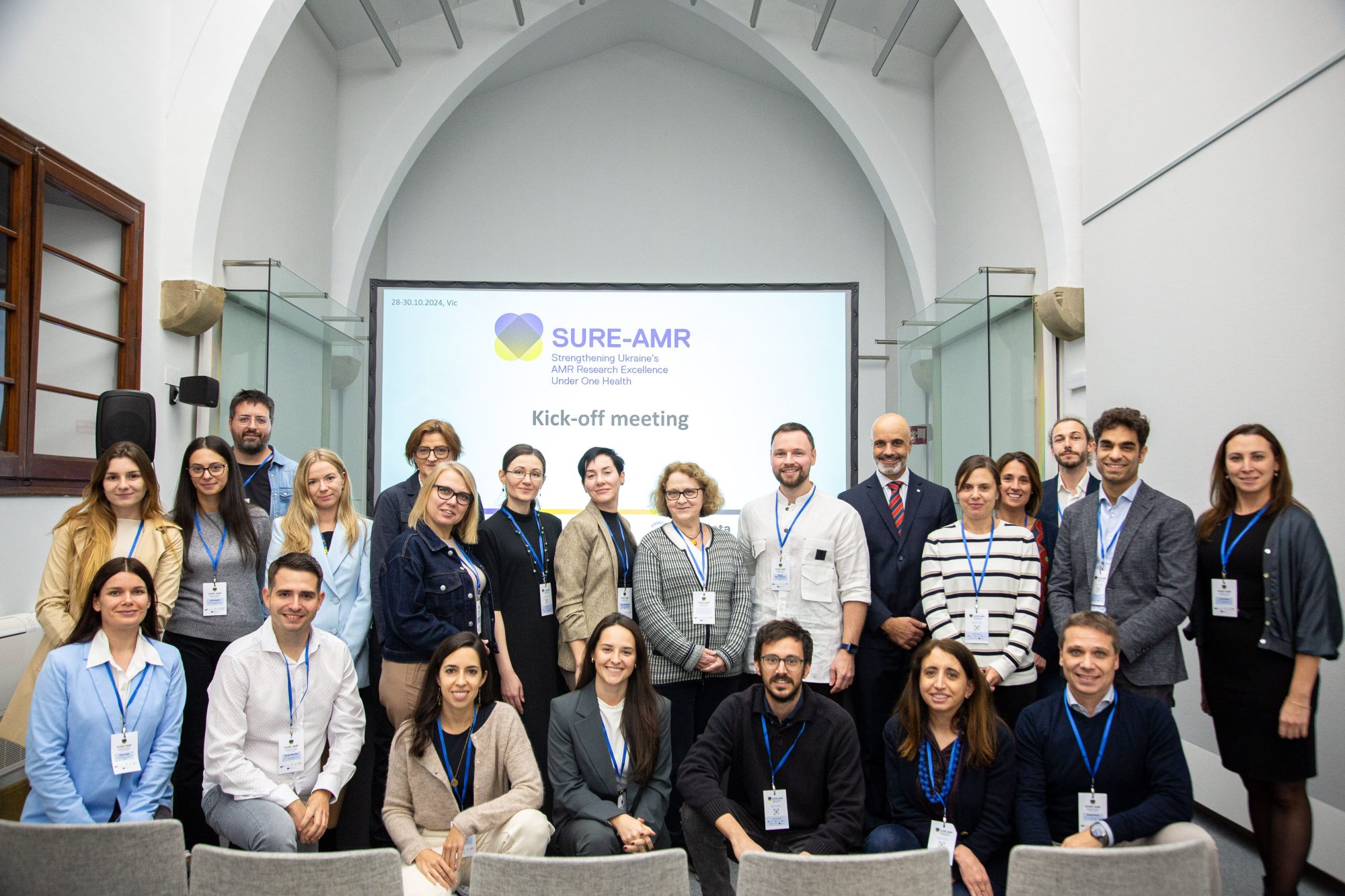BETA TC participates in the European SURE-AMR project to tackle antimicrobial resistance in Ukraine and Europe

- The project will study the impact of the overuse of antibiotics in Ukraine, from a human, animal and environmental health point of view, as a consequence of the war.
- The Ukrainian war has exacerbated the spread of antimicrobial resistance genes and makes it urgent to improve the quality of data and the effectiveness of policies.
- In three years, this research will empower the Institute of Molecular Biology and Genetics of Ukraine (IMBG) as a new European reference centre in this field.
Antimicrobial resistance (AMR) – or the ability of microorganisms to resist antimicrobial treatments, especially antibiotics – has been identified by the World Health Organisation (WHO) as one of the greatest threats to global health, food security and development. The conflict in Ukraine has exacerbated the spread of antibiotic resistance genes and accelerated their spread across Europe. This is due to the increased prescription of antibiotics to hospitalised patients and the lack of policies limiting the administration of antibiotics to livestock destined for the food industry.
From an environmental point of view, antibiotics and resistance genes found in livestock manure and used to fertilise fields end up in aquatic systems, which means that this water is used for human consumption. In addition, resistance genes are also found in urban wastewater, which is not removed by sewage treatment plants and contaminates rivers and their waters, which can also eventually reach households.
Antimicrobial resistance develops faster than the search for new drugs can produce them. Therefore, limited and restrictive use of antibiotics is key. The lack of data on AMR in Ukraine limits the monitoring of its spread in the country and makes it difficult to assess, so it is essential to promote new policies, with a scientific basis and support, to address this challenge.
Facing this reality, this week we saw the launch of SURE-AMR, a European project with the prominent participation of the BETA Technological Centre of UVic-UCC, as well as the University Hospital of Bonn (Germany), the Higher Institute of Health of Italy and the National Institute of Medicine of Poland. The three-year project is funded by the Horizon Europe program and will work to enhance the research and innovation capabilities of the Institute of Molecular Biology and Genetics of Ukraine (IMBG) in the field of AMR research.
This project connects with the role CT BETA has played in the global initiative ‘Science for Ukraine’, an NGO spontaneously born the day after the outbreak of the war in Ukraine in February 2022. Throughout its two-year history, Science For Ukraine has offered thousands of opportunities for Ukrainian scientists to carry out research stays around the world, promoted agreements between institutions and initiated mobility programs for students. For Sergio Ponsá, director of CT BETA, ‘SURE-AMR is another example of the commitment we are having to the Ukrainian research ecosystem’. He also recalls that ‘building a research ecosystem is very difficult, that is why it is necessary to preserve the Ukrainian one, as it will be a key piece to rebuild the country’.
A new European reference centre in this field
SURE-AMR is an initiative that aims to promote scientific excellence in Ukraine under a One Health Approach (OHA) and to enhance the scientific reputation of the IMBG, the project coordinator. Ada Domingo, project manager at CT BETA, explains: ‘SURE-AMR will strengthen knowledge transfer and foster new case studies, and all this should serve to create new training programs for IMBG researchers and staff, in many cases taking CT BETA as an example’.
The Ukrainian institute will be supported by a new generation of young scientists and will strengthen the expertise of its research staff through cooperation with EU partners who already possess strong scientific excellence in this field. These partners have proven experience in generating economic impact and promoting awareness and integration of this research into national policies.
The project will work to position the IMBG centre at EU standards, through international collaboration in scientific capacity building. SURE-AMR will act in the scientific, social and economic fields. Scientifically, it is expected to help expand the antimicrobial resistance research community at IMBG and create a stronger and more connected community. Socially, it seeks to improve public health and environmental quality in Ukraine and the EU, through a global health approach that will help to better prevent and manage AMR. Finally, economically, the project will help create innovative protocols and solutions for the health and environmental sector, and empower regional businesses to improve processes, innovation and job creation.
